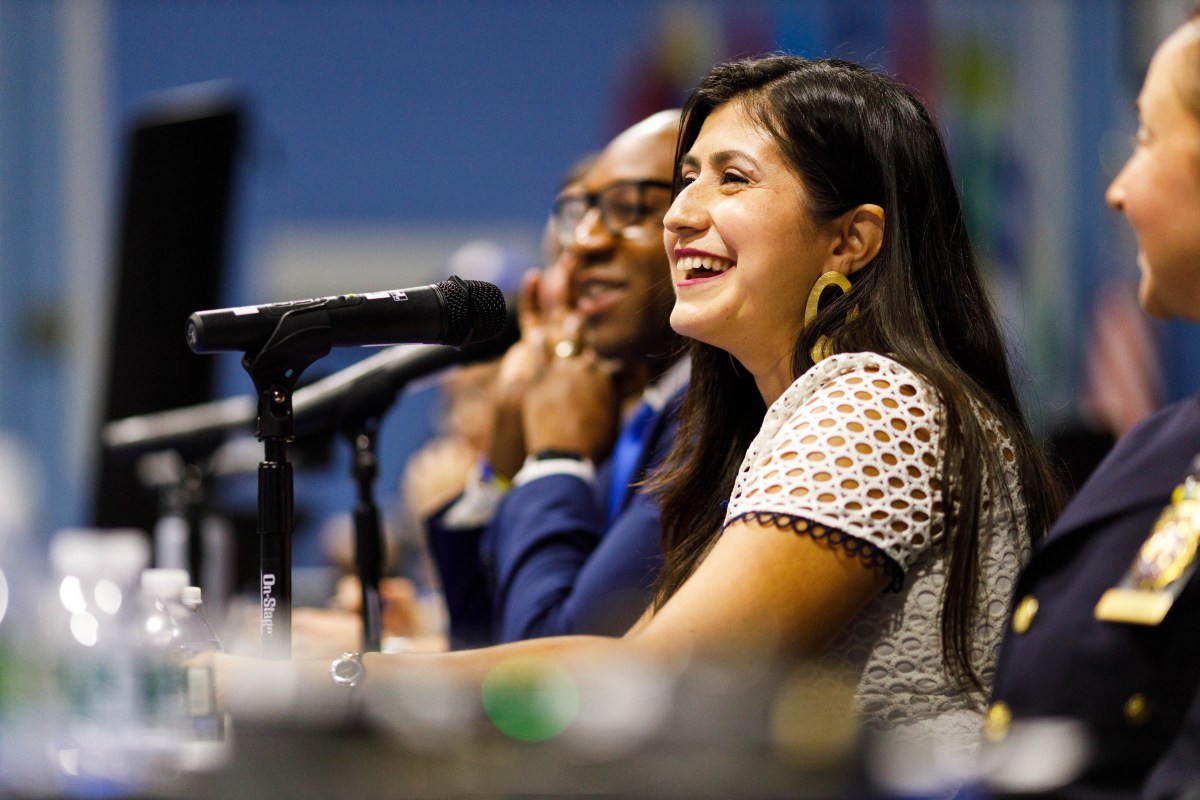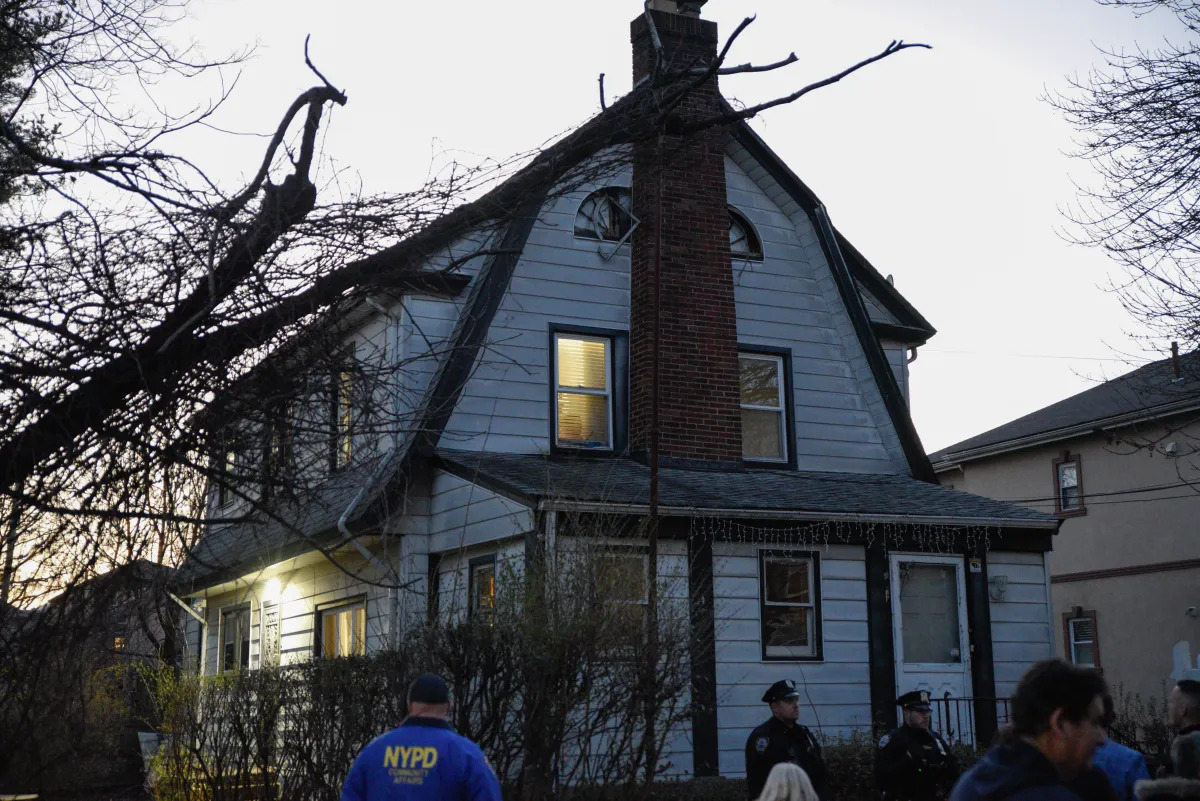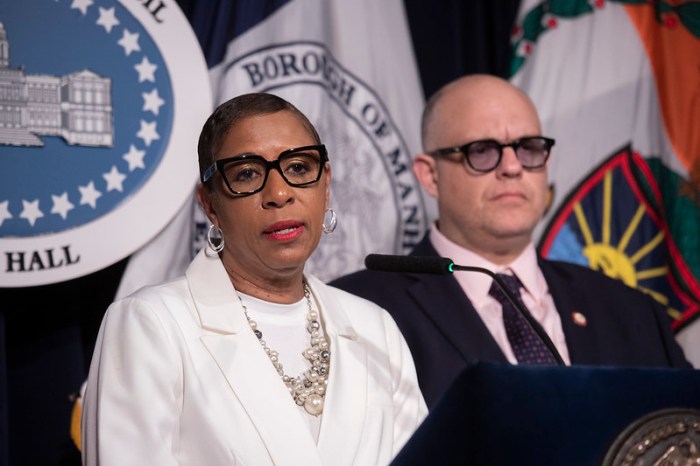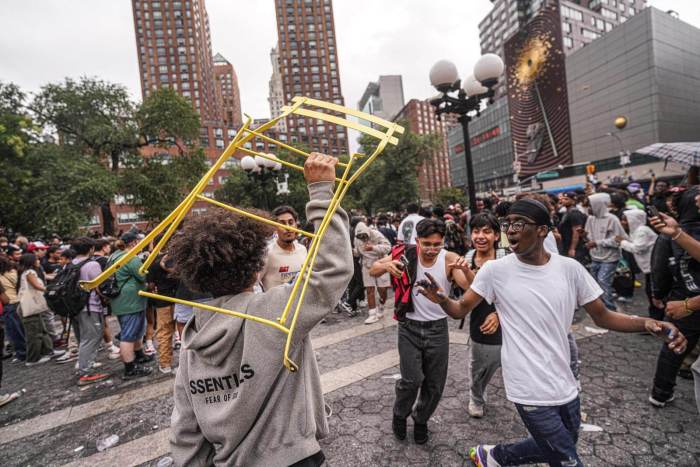
Brooke Guinan has plenty of reasons to march at the upcoming pride celebration on Fifth Avenue.
“As a trans woman, it’s constantly a battle to just sort of stay positive and really find value in yourself,” she said during a recent interview. “We still live in a time where trans people are constantly being legislated.”
“It can make you feel like you’re less than human sometimes because you feel like you’re not a person, you’re a movement,” she added.
As the first openly transgender woman in the FDNY, Guinan, 29, became a local face of the LGBTQ community when she appeared on a campaign poster wearing her fire helmet and a T-shirt reading “So Trans So What” for the advocacy group Vocal Organization for International Courage and Equality in 2014.
Guinan, who serves at a station in Astoria, is the FDNY’s LGBTQ outreach coordinator, which involves recruitment efforts, youth mentorship and helping the department become more accepting of all people, including instituting a bathroom policy that allows members to use the bathroom that matches their identity.
But Guinan still grapples with what she calls the dark statistics about the LGBTQ community like high rates of homelessness among youth and the violence directed toward it.
Just weeks before Sunday’s Pride March, two transgender women were attacked in Bushwick, and the death of a transgender woman in Chelsea in April is being investigated as a homicide, according to police.
A recent report by the Anti-Violence Project found that there were 77 homicides of LGBTQ and HIV-affected people in 2016, including the 49 people killed in the shooting at the Pulse nightclub in Orlando on June 12, 2016. Of those homicides, 19 were transgender or nonconforming people and 17 were transgender women of color.
“I wish that I knew how to prevent more trans people from dying simply for existing and being who they are,” Guinan said. “I don’t have answers on how to combat that.”
“But, what I do know how to do is be vocal and be visible and show up for LGBTQ youth and make sure that they know their options and they know their worth,” she said.
And that’s what she’ll be doing on Sunday, as one of the grand marshals at the Pride March, which she emphasized is a march, not a parade.
“This is not us just walking around and putting on a show,” she said. “This is a march and a demonstration. Until we actually have full equality in society, it will be a march. It will not be a parade.”
The Pride March began in 1970, the year after the Stonewall riots, when members of the LGBTQ community protested against a police raid at the Stonewall Inn in the West Village.
“It was born out of resistance,” Guinan said. “It was born out of Stonewall. It was born out of this movement of people turning around and saying we will no longer accept being told that we are less than or deviant.”

















